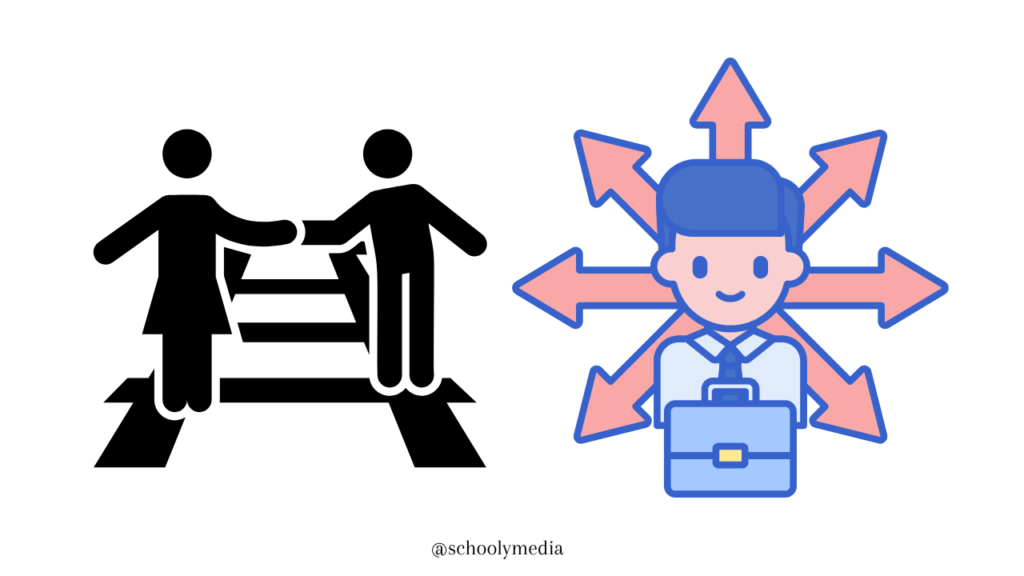In today’s world, many people underestimate the impact that hobbies can have on shaping their future careers. What starts as a casual interest or passion outside of work or school can often develop into a fulfilling and successful career path. lets understand How Hobbies Can Shape Future Careers
As parents, educators, and mentors, recognizing the potential of hobbies to influence career choices can be instrumental in guiding young individuals toward professions that align with their interests and strengths. Here’s how hobbies can play a pivotal role in shaping future careers:
“Hobbies are the stepping stones to discovering passions that can turn into lifelong careers.” – Mr. B. Kumar
1. Discovering Passion and Interest
I think Hobbies provide opportunities for individuals to explore and discover what they truly enjoy and feel passionate about.How Hobbies Can Shape Future Careers
- Exploration:
- Hobbies provide a platform for young people to delve into different activities and interests in a relaxed and enjoyable environment. This exploratory stage is important because it allows them to try out different activities without the pressure of performance or competition. Whether it is playing a musical instrument, painting, coding, or hiking, hobbies open up a world of possibilities. This wide exploration can lead to the discovery of passions and talents that might otherwise remain untapped. Furthermore, this low-pressure environment fosters creativity, resilience, and a growth mindset as young individuals learn to embrace new challenges and experiences without fear of failure.

- Self-discovery: hobbies
- Involvement in hobbies plays a vital role in the journey of self-discovery. Through consistent involvement in different activities, individuals can uncover their personal preferences and interests. This process often uncovers hidden strengths and talents, helping young people understand what they are naturally good at and what they enjoy doing. For example, a student may discover a knack for photography when capturing moments during a family outing, or discover a fascination with astronomy through stargazing.
- In addition, hobbies can highlight areas where one feels most comfortable and engaged, providing insight into potential career paths or lifelong passions. This self-awareness not only boosts confidence but also helps make informed decisions about future education and career pursuits. Engaging in hobbies also teaches valuable life skills such as time management, problem-solving, and goal setting. These activities provide a constructive outlet for stress, contributing to overall mental and emotional well-being.
- Ultimately, the process of exploration and self-discovery through hobbies equips young people with a deeper understanding of themselves, fostering a sense of identity and purpose that will serve them well throughout their lives.
2. Developing Skills and Expertise
Through consistent practice and dedication to hobbies, anyone can develop valuable skills and expertise that are transferable to various career paths. then see How Hobbies Can Shape Future Careers
- Skill Acquisition: Hobbies often involve learning new techniques, problem-solving skills, and creative thinking, all of which are essential in professional settings.
- Building Confidence: Mastering a hobby boosts self-confidence and encourages individuals to tackle challenges and pursue opportunities in related fields.
3. Exploring Career Opportunities
hobbies can provide insights into potential career paths and industries that individuals may not have considered otherwise.
- Industry Exposure: Some hobbies naturally align with specific industries or professions, offering firsthand exposure to different career options.
- Networking: Engaging in hobbies often involves interacting with like-minded individuals and professionals, expanding one’s network and discovering new career opportunities.
4. Enhancing Creativity and Innovation
Creative hobbies stimulate innovation and problem-solving skills, which are highly valued in many industries.
- Outside-the-Box Thinking: hobbies encourage individuals to approach problems from different perspectives and explore unconventional solutions.
- Inspiration: Creative pursuits often inspire new ideas and concepts that can be applied to professional endeavors and entrepreneurial ventures.

5. Building a Personal Brand and Portfolio
hobbies provide opportunities to build a personal brand and showcase skills and accomplishments to potential employers or clients.
- Portfolio Development: Documenting achievements and projects related to hobbies can serve as a portfolio to demonstrate skills and expertise.
- Online Presence: Sharing hobby-related content on social media or personal websites can attract attention and opportunities from recruiters or collaborators.
6. Balancing Work and Life
Maintaining hobbies alongside academic or professional commitments promotes a healthy work-life balance and reduces stress.
- Stress Relief: Engaging in hobbies provides an outlet for relaxation and rejuvenation, enhancing overall well-being and productivity.
- Passion Projects: Hobbies often serve as passion projects that individuals can pursue outside of their primary responsibilities, fostering personal fulfillment and happiness.
7. Pursuing Entrepreneurial Ventures
Some hobbies can evolve into entrepreneurial ventures or small businesses, providing opportunities for self-employment and financial independence.
- Market Opportunities: Identifying niche markets or gaps in the industry related to hobbies can lead to entrepreneurial success.
- Creative Ventures: Entrepreneurs often draw inspiration from their hobbies to innovate products or services that cater to specific customer needs or interests.
8. Guidance and Support
Parents, educators, and mentors play a crucial role in recognizing and nurturing the potential of hobbies to shape future careers.
- Encouragement: Support young individuals in exploring their interests and hobbies without imposing predefined career expectations.
- Education and Resources: Provide access to resources, workshops, and educational opportunities that align with hobby-related interests and career aspirations.
How Hobbies Can Shape Future Careers“Through hobbies, we uncover our true talents and interests, paving the way for a fulfilling professional journey.” –
Mr. B. Kumar
Conclusion
Hobbies are not just leisure activities; they can serve as valuable pathways to future careers that align with individuals’ passions, skills, and aspirations. By encouraging young people to explore their interests, develop valuable skills, discover potential career paths, enhance creativity, build a personal brand, maintain work-life balance, pursue entrepreneurial ventures, and providing guidance and support, parents, educators, and mentors can help shape a generation of professionals who are fulfilled and successful in their chosen fields. Remember, embracing hobbies as potential career influencers is about recognizing the power of passion and curiosity in guiding individuals toward meaningful and rewarding professional paths.

here are some tips to guide students in finding their path: How Hobbies Can Shape Future Careers
Tips for Finding Your Path as a Student
- Explore Various Interests:
- Try out different extracurricular activities, clubs, and hobbies to discover what you enjoy and are passionate about.
- Reflect on Strengths and Weaknesses:
- Identify your strengths and areas for improvement through self-assessment and feedback from teachers, peers, and family.
- Set Personal Goals:
- Define short-term and long-term goals that align with your interests and strengths to give you a sense of direction.
- Seek Guidance from Mentors:
- Talk to teachers, school counselors, and professionals in fields you’re interested in to gain insights and advice.
- Research Potential Careers:
- Investigate various career options by reading, attending career fairs, and participating in job shadowing or internships.
- Engage in Community Service:
- Volunteer for causes that interest you to gain experience, develop new skills, and understand different career fields.
- Stay Open to New Experiences:
- Be willing to try new things and step out of your comfort zone, as this can lead to unexpected opportunities and discoveries.
- Utilize School Resources:
- Take advantage of resources offered by your school, such as career counseling, workshops, and extracurricular activities.
- Develop a Growth Mindset:
- Embrace challenges and view failures as learning opportunities to continually grow and improve.
- Balance Academics and Extracurriculars:
- Manage your time effectively to ensure you’re excelling academically while also exploring your interests outside of the classroom.
- Network with Peers:
- Connect with classmates and peers who share similar interests to exchange ideas and explore opportunities together.
- Stay Informed About Trends:
- Keep up with trends in education and job markets to understand the skills and knowledge that will be in demand in the future.
- Create a Vision Board:
- Visualize your goals and aspirations by creating a vision board that represents what you want to achieve.
- Reflect Regularly:
- Take time periodically to reflect on your experiences and reassess your goals and interests to ensure you’re on the right path.
- Maintain a Positive Attitude:
- Stay optimistic and resilient in the face of setbacks, and remember that finding your path is a journey that takes time and effort.
“Engaging in diverse activities allows us to explore potential career paths in a low-pressure environment, revealing what truly excites us.” – Mr. B. Kumar
These tips can help students navigate their journey of self-discovery and career exploration, leading them toward a fulfilling and successful future. How Hobbies Can Shape Future Careers






